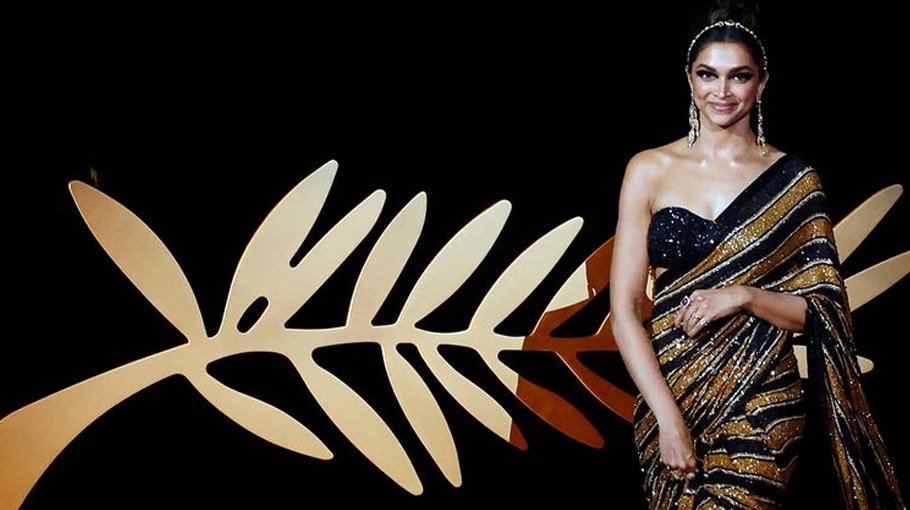Cannes: A demonstration of India’s soft power

India made a flamboyant splash at Cannes this year. With both India and the internationally famed film festival celebrating their 75th anniversary, it was a felicitous conjuncture. India was also the country of honour for 2022. No wonder, India made its presence felt with an impressive delegation led by the dapper Information and Broadcasting Minister Anurag Thakur, who is also a Member of Parliament from Hamirpur, Himachal Pradesh.
Inaugurating the Indian pavilion, Thakur recalled the great contribution of Indian cinema during the 110 years of its existence. Indeed, India is, without doubt, one of the great film producing and viewing nations of the world, even though, barring a few exceptions, it is yet to receive its due on the world stage. As if to recognise this, Cannes will also mount a retrospective of Satyajit Ray, whose 100th birth anniversary we are celebrating.
The Indian film industry produces close to 2000 films yearly, making it, at least by numbers, the biggest in the world. The Minister’s pitch for “Make in India” movies was both well-timed and attractive: “The 2020s are the best time to make art and films in India …. The streaming revolution has taken the country by storm, and the popularity of digital and OTT platforms has changed how films are created, distributed and consumed.”
Playing on the famous lines from Deewar, Thakur quipped, “Hamare paas sirf film industry nahi, hamare paas cine-maa hai!”—we don’t merely have a film industry, we have Cine-Ma -- the cine mother.”
He announced two schemes, Audio-Visual Co-production incentives and Incentive Scheme Shooting of Foreign Films in India, to encourage collaborations. The Indian government will give cash incentives of up to 30% of a film’s cost with a cap at $2.6 lakhs for foreign films shot in India with an additional incentive of $65,000 if at least 15% of the manpower is Indian. He said, “Let’s make IFFI [International Film Festival of India] the Cannes of the East.”
Red on red appearance
Deepika Padukone’s red on red appearance was stunning — she wore a red Louis Vuitton gown on the celebrated red carpet at Cannes, a favourite with fashionistas. She is serving on the jury of the film festival this year, which is an honour in itself. It has been nine years since any Indian has done so.
Previously, eight other Indians have served on the Cannes jury: Mrinal Sen, Mira Nair, Arundhati Roy, Nandita Das, Shekhar Kapoor, Sharmila Tagore, Vidya Balan, and Aishwarya Rai. The last, incidentally, celebrates her 20th year at Cannes.
Padukone recalled her fifteen years in the industry, starting out as an unknown actor, who, no one would have predicted, would rise to the very top of the profession. “When we look back at the 75 years of Cannes,” she said, “I feel collectively as a nation, we have it. We have the talent, we have the ability and I think we just need that sort of conviction and there will come a day when India won’t have to be at Cannes, Cannes will be in India.”
Musical genius A.R. Rahman, multi-grammy winning younger musician Ricky Kej, and Shekhar Kapoor, currently director of Film and Television Institute of India, are also at the festival. Kapoor, who in addition to a number of successful and acclaimed Hindi movies also directed Elizabeth (1998) and The Four Feathers (2002), said, “We are the land of stories.
We are the East
Since forever, filmmakers have been saying — ‘how do I adapt my story, so that the West loves it?’ Now, the West is at a plateau, and the East is rising. Who is the East? We are the East. We are the culture. We are the storytellers.
We have to step forward confidently, and the world will accept us. Let’s go forward confidently. This is a moment of confidence. And as important as Cannes is, what is much more important is how we use it afterwards — the aftermath of Cannes.”
Also present at the inauguration was Prasoon Joshi, the Chairman of the Central Board of Film Certification since 2017. A well-known poet, lyricist, and communication executive, Joshi said, “We are a society of storytellers but we are not very confident about those stories, whether the world will want to hear them or not.
We are now reaching the stage where we are getting that confidence, and I feel when we go back from Cannes the biggest achievement would be the authenticity via which we will be able to express our core.”
There are six Indian films at Cannes this year: Rocketry: The Nambi Effect, (Hindi, English, Tamil), Godavar (Marathi), Alpha Beta Gamma (Hindi), Boomba Ridea (Mishing), Dhuin (Maithili) and Niraye Thathakalulla Maram (Malayalam). R Madhavan, the well-known actor, makes his directorial debut with Rocketry, which is about Indian Space Research Organisation (Isro), scientist Nambi Narayanan, falsely accused in 1994 of espionage and exonerated, with a compensation by India’s Supreme Court in 1998. The title role is also played by Madhavan.
As several participants hailed Prime Minister’s push to make India a digital superpower, Modi himself said on May 17, “We have a lot of stories to be explored.
India truly possesses immense potential to become the content hub of the world.” His government was committed to furthering ease of doing business in showbiz: “From facilitating international film co-productions to ensuring a single-window clearance mechanism for permissions for filming across the country, India offers seamless possibilities to filmmakers of the world.”
All told, India at Cannes was a demonstration of the country’s soft power. A well-orchestrated campaign that not only showcased the India’s talent, but signalled its intention to make its presence felt on the world stage in the years to come.
Makarand R. Paranjape is a Professor of English at the Jawaharlal Nehru University. (Views are personal).
Source: Gulf News



